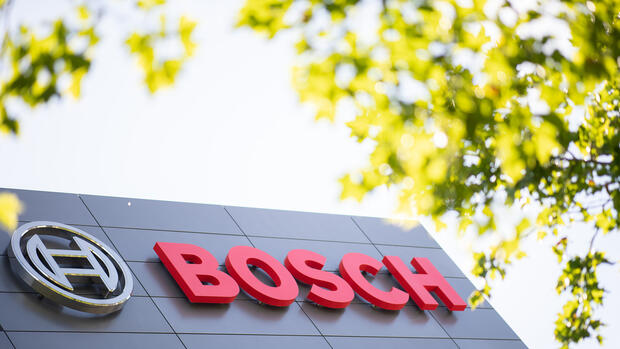Employee representatives at Bosch are to be more closely involved in decisions in the future.
(Photo: dpa)
Stuttgart According to an agreement with the works council, Bosch has ruled out redundancies for the core Mobility division, which is in transition, until 2027. The agreement applies to almost 80,000 employees in Germany, said the world’s largest auto supplier, its works council and IG Metall on Tuesday.
In addition, a future collective agreement was concluded with the trade union for the conversion of locations to alternative drives or software solutions. Employee representatives should be more involved in decisions in the future. The long term until 2027 surprised the industry.
This was preceded by a rift between management and employee representatives that was unusual for Bosch and sometimes openly expressed. At its peak, general works council chief Frank Sell even stepped outside the factory gates a few months ago and accused the company management of presenting the workforce with a fait accompli, for example when relocating abroad
Up to now, Bosch has been known for a functioning social partnership. All important things used to be settled together behind closed doors and only announced after a solution. This style had probably been lost in the meantime.
At the end of March – nine months before her first contract with Bosch expired – HR Manager Filiz Albrecht left the company, paving the way for a fresh start. Under the new Head of Human Resources, Stefan Grosch, it has now borne fruit relatively quickly.
Dispute with employees ended
“We are pleased that we have achieved a result that is acceptable for all parties on this complex issue. The change in mobility is changing our business significantly. It is important for us to remain efficient and competitive,” said the new Head of Human Resources, Stefan Grosch. This can only be achieved if everyone pulls together and takes responsibility.
>> Read here: Bosch places largest bond in company history
“We started with an extensive negotiation package and have achieved very good joint results on all points,” emphasizes General Works Council Chairman and Deputy Supervisory Board Chairman Frank Sell now. “The works councils are now also involved in strategic and economic planning at an early stage.”
Bosch is reorganizing its mobility division
Bosch had announced that it would reorganize the low-yield mobility division at the beginning of 2024 with its own business responsibility and a focus on software. Like all major suppliers, Bosch is also struggling in the transformation to electromobility with high upfront expenditure and a tendency towards overcapacity. Because electric drives are much simpler in design than technologies for combustion engines and require significantly fewer employees in production.
>> Read here: Bosch boss Hartung is reorganizing the auto parts business
That is why there is now fierce competition among suppliers and car manufacturers for additional technologies and value-added shares such as thermotechnology, power electronics, central on-board computers including software architectures.
Competitor ZF was the pioneer in future collective agreements for the transformation. Here, Supervisory Board member and IG Metall district leader Roman Zitzelsberger had a decisive influence on greater involvement of the employee side.
At ZF there are now regulations for all but one location. This shows that job security does not necessarily mean job security. Up to now, Bosch had always only sought solutions site by site with the local works councils. This salami tactic was increasingly a thorn in the side of the unions.
With agency material.
More: ZF attacks competitor Mahle
